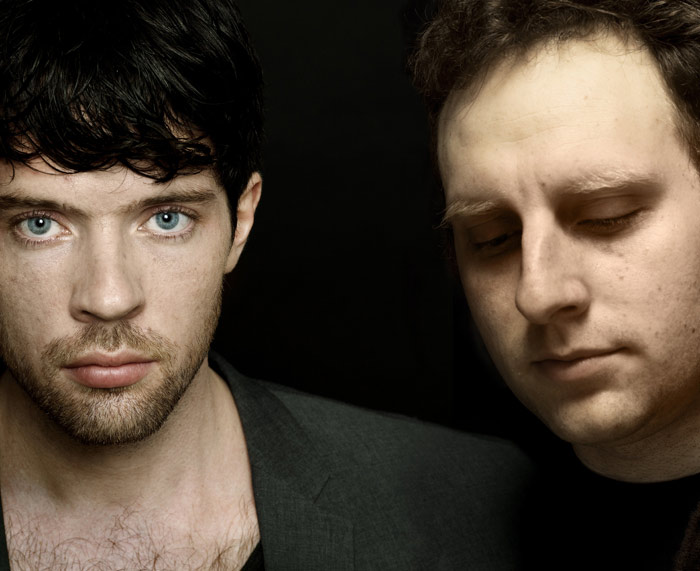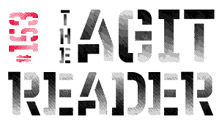
Human After All
by Kevin J. Elliott
In 2004, when Hamilton, Ontario’s Jeremy Greenspan released the unassumingly brilliant Last Exit, his debut as the Junior Boys, the landscape for electronic music was beginning to shift from the artistic fringes it once inhabited towards spectacle. The beats were designed for a massive audience, the DJ became rock star, and indie culture began embracing techno and house. But Junior Boys were the inverse of that movement. It’s not as if they were rebelling against the spotlight, it’s just they preferred to remain insular, snug in the corner and imploding with minimalism and perfecting subtle nuance—things missing from electronic music at the time.
It would be unfair to call the Junior Boys underwhelming, though listening to those first couple albums without a honed ear might have warranted that conclusion. Rather than rely on bells and whistles, the cold sterile grooves of Greenspan’s early work required the listener to dig underneath and see all the mechanisms working in concert. They were still geared for the dancefloor, just without being as celebratory and blaring as the latest Daft Punk side.
Nearly a decade later, Greenspan, now aided by Matt Didemus, has made his most human record yet in It’s All True. Think of the parable about the tortoise and the hare, and the Junior Boys are the slow hero of that story. It’s All True sounds like that tortoise crossing the finish line. Had you bet on him from the beginning, the journey may have been tiresome, but it was worth the wait. It’s All True maintains the touchstones of the Junior Boys’ aesthetic—prickly distant guitars, soft beats, straight lines and sleek silences—but they’re now matched to more soulful vocals, bouncier beats, looser timings and a generally riant disposition, even though in speaking with Greenspan, I came to find out he wasn’t in a very good place during the recording of the album.
When you were writing and recording It’s All True, what was the biggest difference or change that you wanted to employ in comparison to Begone Dull Care?
Jeremy Greenspan: A lot of the writing on this record was about the process of the last record. Musically, one of the big changes is that I approached this record as if I was making an R&B or a soul record and less of a dance record. That allowed me the flexibility to shift around the tempos. At first, it started slow—everything I was making was slow—but I started making songs in ¾ time, so there was a lot of freedom in not making a dance record.
I feel like this album has an increased human element to it. Many of the songs emit a natural glow and aren’t as shiny and glossed as past efforts. Would you agree?
JG: One of the things that a lot of modern R&B does is that it puts the vocals way up in the front. I decided this time that the vocals should be really loud, and since I don’t use a lot of correction, like pitch correction and compression, it does make the vocals sound more human. The gloss of the production is probably about the same, but a lot of these songs were mixed quicker. I didn’t fuss over them the same way.
It’s All True, to me, is also your most transparent album. “Banana Ripple” in many ways, is the reverse of something like “In the Morning,” in that it’s looser and evolved. Is the album an accumulation of all the sounds you’ve made before or just a natural progression of where you wanted the group to go?
JG: I don’t really have those kinds of decision-making moments. Ultimately, when you’re making music, going from record to record is the equivalent of going away and then coming back to see people for the first time in five or six years. They’ll say, “My, you’ve really changed,” but in your head you don’t notice that change. You’ve been with yourself the whole time. You just kind of adjust your interests and your predilections of what you’re going to make. New records sound different because you’ve changed in some way, you’ve gone through something.
I see that change then in the lyrics as well, especially on “The Reservoir” and “Second Chance.” Those songs are happier, but sound somewhat passive-aggressive.
JG: The album was definitely written in an extremely bad state of mind. I started writing this in a very down, dark, depressed state. It talks about going through some very difficult things. But as time went on, I began to rebuild confidence in myself. So it’s possible that some of the songs written at the end—and “Second Chance” is one of them—were written in defiance. I was definitely using the record as a way to get through that state and frustration. The music itself is happy. It’s really sunny and uplifting, despite the fact that the lyrics are about losing yourself. They’re all about going insane and losing all of the confidence that you had in the past, all of your potential, but to a happy beat.
Your music is often described as minimal, but if listeners put in a little work, they’ll find a whole lot going on in the background and in the beats. Has it always been intentional to focus so much on nuance and have the listener do a little digging to get the whole of your songs?
JG: I think so, especially with the last album. I always wanted the music to be emotionally complicated. That’s why I like melancholic music so much: because it’s neither desperately sad nor happy. With It’s All True. I wanted a fuller range of emotions. I was just trying to be honest. I wasn’t in a good place emotionally so I used this record as something that helped me claw my way back. Even something like disco and why I’m drawn to it is because it’s seemingly happy music, but a lot of it is not. It was about the state of the world at that time, living among the ’70s with everything in recession. The whole world was falling apart, yet this dance culture was thriving. I think that all dance music has this dark undertone to it, and I’ve always fed off of that a bit. I want Junior Boys to be emotionally sophisticated.
Instead of picking out influences, I’d rather do some word association with artists I think have shaped your music or may be your contemporaries. Jimmy Jam and Terry Lewis?
JG: Of course, the new jack swing and Janet Jackson. But not a huge influence.
Intelligent dance music circa 1997?
JG: Definitely not.
Brian Eno?
JG: More with Roxy Music, I would say.
Daft Punk?
JG: I thought their first and second records were incredible. They’re one of those bands where you like them as a band, but you don’t like who they’ve influenced. You don’t really like all of the bands that they have spawned.
Your neighbors, Chromeo?
JG: I know who they are, but I don’t think I could name you a song they’ve written.
And lastly, Hall and Oates?
JG: I wouldn’t cite them as a major influence, not as much as bands like Steely Dan and 10cc.
